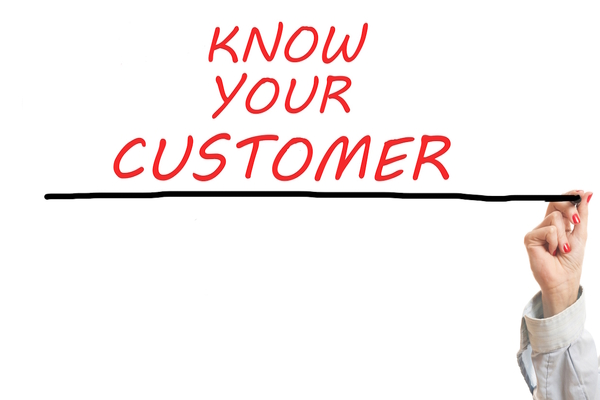Fintech innovation could mean the end of traditional business banking
Pioneering fintechs and a changing customer landscape pose a serious threat to traditional business banks – especially when serving SMEs

The fintech sector is revolutionising the financial services industry by simplifying transactions, reducing costs, enabling innovation, empowering customers and enhancing security. There were 8,775 fintech start-ups in the United States in 2021 and, last year, the fintech market value increased to $4 trillion.
The growth in the US fintech environment has been created by two main drivers. Firstly, there have been technological advances, such as the spread of smartphones and greater levels of connectivity between businesses and their customers. The second factor is the way in which traditional banks – and financial regulators – reacted to the 2008 global financial crisis.
A changing banking landscape
Stung by the losses of the crisis, banks around the world drastically reduced their lending activity, while regulators made changes aimed at increasing competition in the sector and diluting the power and influence of the major players.
At the same time, the biggest banks’ lack of market dynamism and aversion to risk meant they were slow off the mark in developing new services based on the latest technology and changing customer needs. This has created a significant gap in the market for alternative service providers and fintech firms.
Many mainstream business banking services have been, and in many cases still are, inefficient, slow and overly expensive. Against this backdrop, dynamic and innovative providers have developed new ways of serving the needs of an increasingly global, complex and mobile business community.
Among the areas where financial innovation has had the most impact are:
Lending
The rise of alternative finance providers has created a hugely valuable new source of business funding. Alternative lenders often pool deposits from individuals and businesses to create new loans for small companies. According to research from Technavio, the global alternative finance market size is estimated to have increased by $176.15 billion between 2020 and 2025.
Online and mobile banking
24/7 bank account access has been made possible by the development of online services available wherever and whenever the SME customer needs it. Some of the most successful new challenger banks provide digital current accounts which incorporate other technology-based services, such as financial management software in a single package.
Payment processing
This is an area where traditional banks perform particularly poorly. The process of transferring cash from one account to another – especially when it comes to cross-border transactions – has long been ripe for disruption. In a report published shortly before the start of the pandemic, the Bank of England said: “Fintech also has the potential to reduce inefficiencies in cross-border payments, which are often regarded as expensive, slow and sometimes lacking in transparency compared to domestic payments. For example, they can cost 10 times more than an average domestic payment and take up to three days to clear.” [BoE Report]
What does this mean for small businesses?
Ultimately, the increasing availability of these new, improved services will make running SMEs easier and more efficient. According to advisory service firm EY, innovation in financial services “drives much needed choice and new services for consumers and SMEs”. The report added: “Fintech will be the catalyst for new services and ways of operating that can have a real impact for how consumers and SMEs operate, such as improving the productivity and ability of SMEs to scale.”
The wealth of fintech services now accessible to SMEs means they can run their operations much more efficiently and at significantly lower cost – enabling owners and managers to focus on what really matters, which is growing the business and driving long-term success.
The availability of a cost-effective and efficient cross-border payment service, for example, can potentially allow businesses to access millions of new customers in overseas territories. Another significant advantage of fintech services in general is the speed at which businesses can complete any required onboarding: this can take a matter of minutes in many instances, compared with up to several days when registering with a mainstream bank. Similarly, the speed and simplicity with which transactions can be carried out is likely to be another major plus-point.
At a time when smaller companies are facing an unprecedented range of pressures, from higher interest rates to skills shortages and complex supply chains, the cost savings and operational advantages offered by fintech services are more important than ever.
About Paysend
Paysend is a next-generation integrated global payment ecosystem, enabling consumers and businesses to pay and send money online anywhere, anyhow and in any currency. It was founded in April 2017 with the clear mission to change how money is moved around the world. As a global end-to-end payment platform, Paysend has its own global network of banks and international and local payment systems and has partnerships with the major international card networks Visa, Mastercard and China Union Pay as a principal member and certified processor. Paysend Business payments solution aims to accelerate the financial growth of small and medium-sized enterprises (SMEs) by providing them with instant and easy payments tools they need to take control of their financial health.


Business Reporter Team
Most Viewed
Winston House, 3rd Floor, Units 306-309, 2-4 Dollis Park, London, N3 1HF
23-29 Hendon Lane, London, N3 1RT
020 8349 4363
© 2024, Lyonsdown Limited. Business Reporter® is a registered trademark of Lyonsdown Ltd. VAT registration number: 830519543





